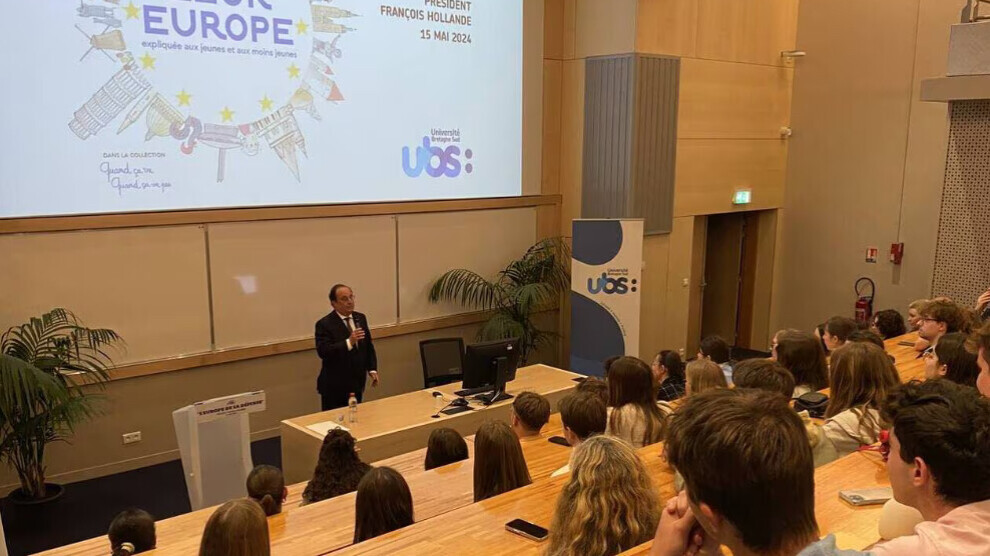François Hollande: Paris massacre in 2013 was an operation of the Turkish state
Former French President François Hollande called the 2013 massacre of three Kurdish women revolutionaries in Paris "an operation" in which the Turkish state intervened.
Former French President François Hollande called the 2013 massacre of three Kurdish women revolutionaries in Paris "an operation" in which the Turkish state intervened.

On Wednesday 15 May, former President François Hollande gave a lecture-talk on the defence of Europe to 300 students on the campus of the University of Bretagne Sud in Lorient.
During the lecture, a Kurdish student asked about the interventions of the Turkish state, recalling in particular the massacre of three Kurdish women revolutionaries in January 2013.
"This is a much more serious situation because it was an operation that we don't know exactly at which level of the Turkish state it was decided, but it is clear that it was the intervention of operators who contributed to the killing of a Kurd with a very strong personality in France," François Hollande said, referring to Sakine Cansız, one of the founders of the PKK.
"This is indeed the intervention of a foreign state, a member of NATO and a candidate for membership of the European Union," Hollande added.
Hollande also noted that the Turkish state pursues an "ambiguous" policy, pointing to Turkey’s relations with Russia despite being a member of NATO, its sale of arms to Ukraine while circumventing sanctions against Russia, the refugee deal and its position in Syria.
On 9 January 2013, PKK founding member Sakine Cansız (Sara), KNK Paris Representative Fidan Doğan (Rojbîn) and youth movement member Leyla Şaylemez (Ronahî) were murdered with three bullets in their heads at the Kurdistan Information Office located a short distance from the cultural centre.
Documents, audio recordings and testimonies came to light that clearly revealed the responsibility of the Turkish intelligence organisation MİT for the massacre. However, there has been no progress in the case. Neither the Turkish state nor the French state shared the information they had. The French Domestic Intelligence Service (DGSI) continues to refuse to provide this information, remaining silent to the requests of the judges and the Kurdish people, claiming that it is a "state secret". The "state secret" barrier has raised further suspicions. Lawyers and Kurdish organisations believe that the documents contain important information about the activities of the murderer, Ömer Güney, who died under suspicious circumstances in prison in 2016. Kurdish organisations and friends have repeatedly warned the French authorities that further attacks are possible if those who ordered the massacre, the killers and their accomplices are not punished. Nearly ten years later, on 23 December 2022, Emine Kara (Evîn Goyî), a leader of the Kurdish Women's Movement, Kurdish artist Mîr Perwer and Kurdish activist Abdurrahman Kızıl were assassinated in front of their association building in Paris.